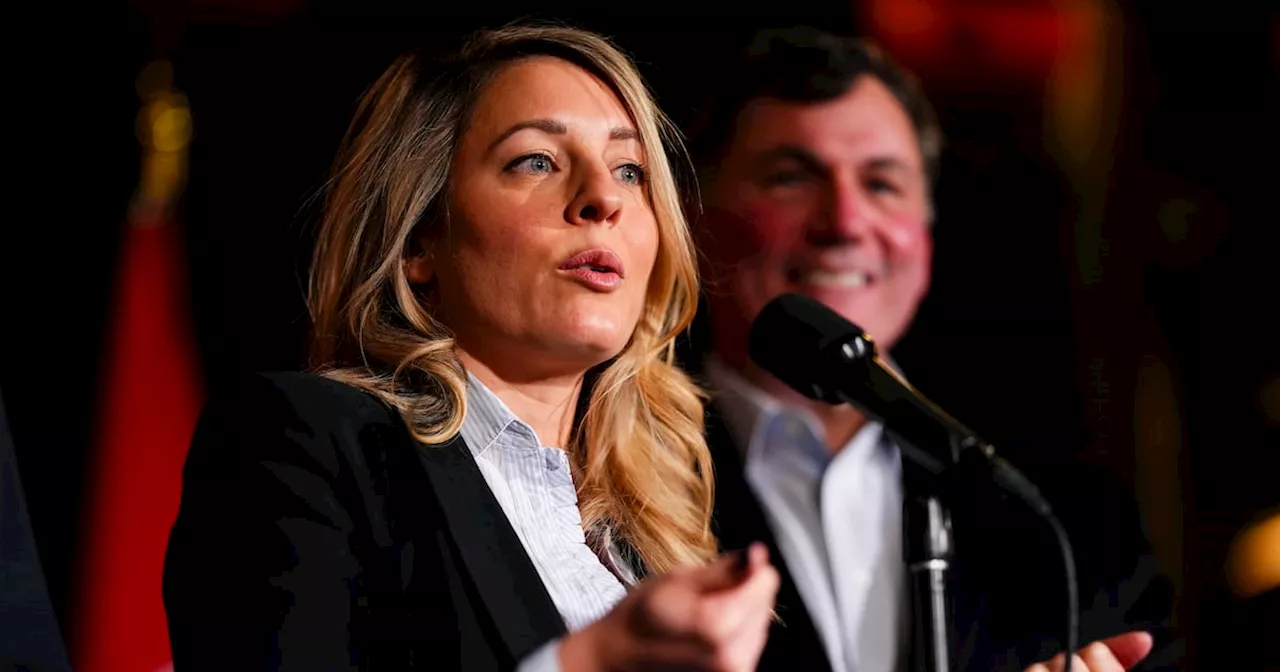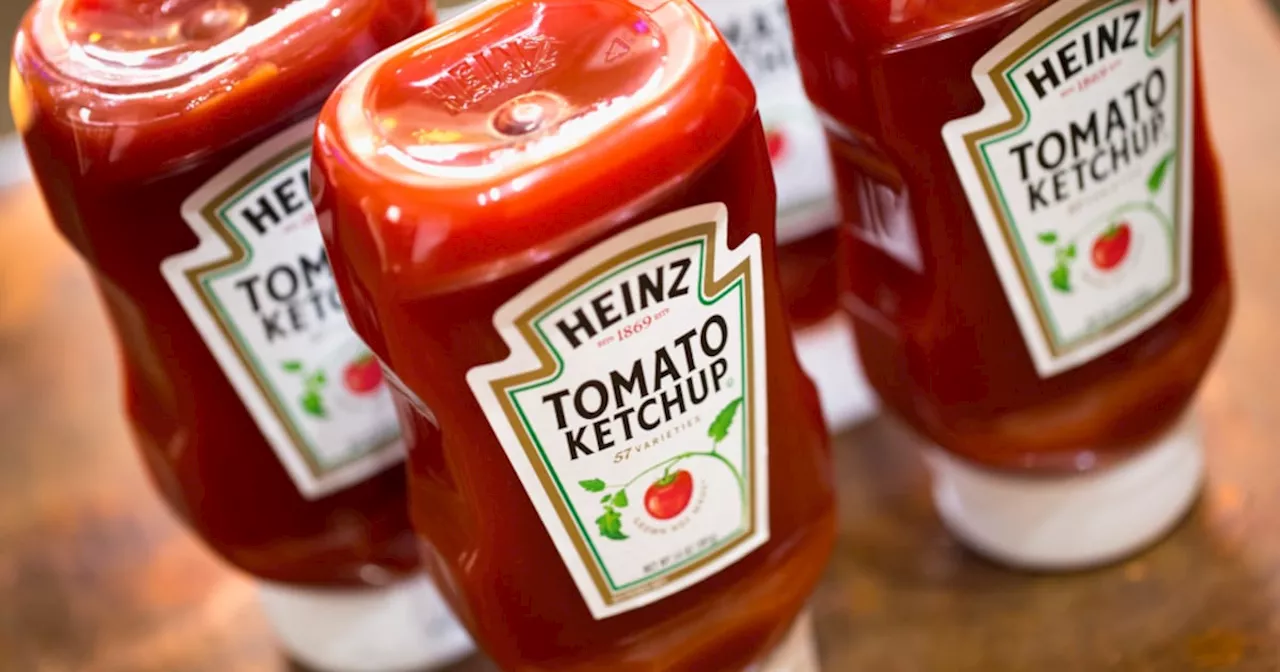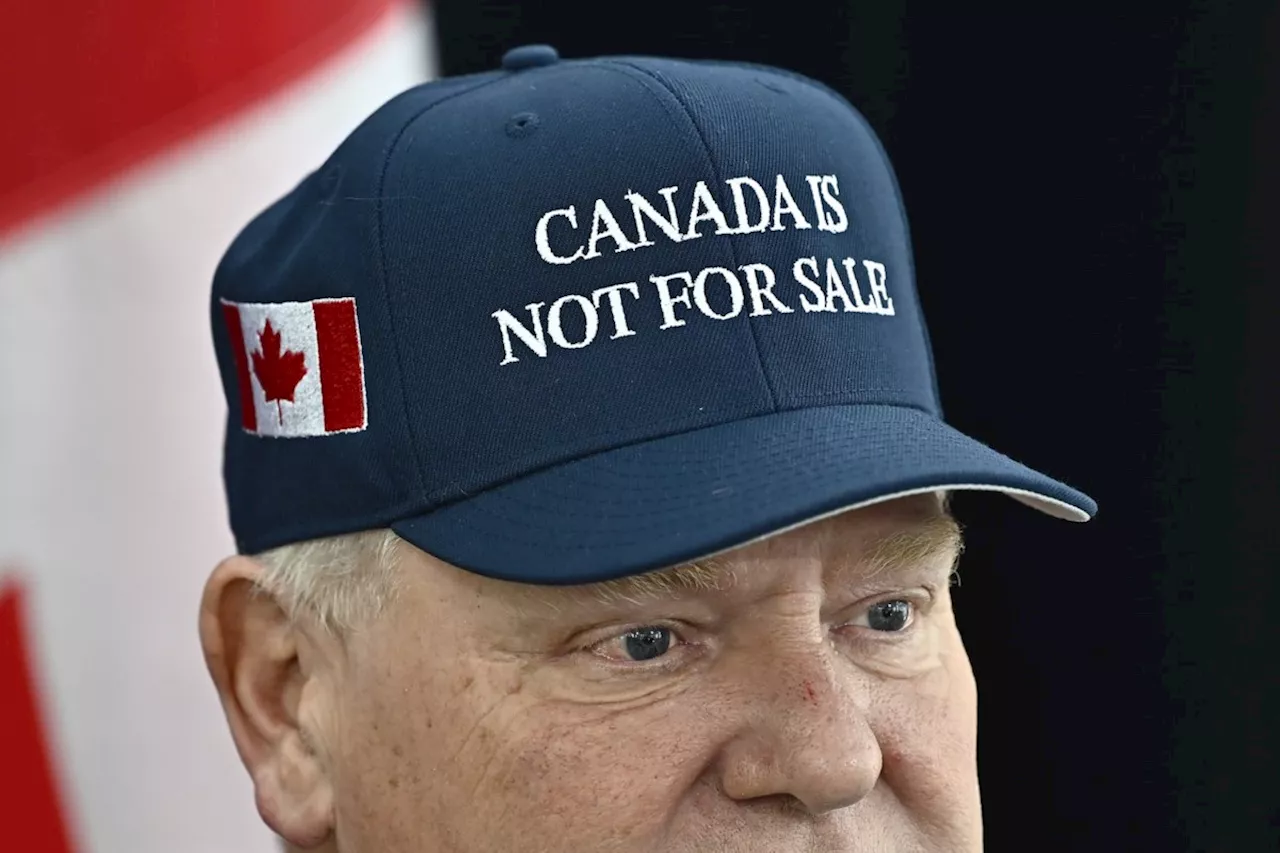Two Canadian marketers discover the difficulty of producing a fully Canadian-made hat, highlighting the challenges faced by domestic manufacturers in a globalized economy.
Liam Mooney and Emma Cochrane, two Ottawa-based marketers, embarked on a journey to create a viral hat that embodied Canadian patriotism after witnessing Ontario Premier Doug Ford donning a hat emblazoned with the message, ' Canada is not for sale.' Ford's action was a response to former U.S. President Donald Trump's public musings about annexing Canada . What began as a simple marketing endeavor quickly transformed into a crash course in Canadian manufacturing.
Mooney and Cochrane, founders of Jackpine Dynamic Branding, discovered the formidable challenge of producing a fully Canadian-made ball cap. Their pursuit led them to numerous apparel manufacturers, who uniformly cited the high cost and limited demand for domestic production as insurmountable obstacles. While they managed to locate some hats entirely manufactured within Canada, they haven't secured a long-term solution. Consequently, their current production relies primarily on ball caps imported from Vietnam, Bangladesh, and China, along with toques sourced from the United States, which are then embroidered in Canada. The dearth of Canadian apparel manufacturing stems from the gradual erosion of the country's textile industry over decades. Factors such as cheaper labor, materials, and components overseas, coupled with the rise of international manufacturing hubs, resulted in the exodus of many Canadian clothing factories.Henry Navarro Delgado, an associate professor of fashion at Toronto Metropolitan University, explained that the Canadian apparel industry flourished in large cities like Toronto, Montreal, and Winnipeg during the 19th century but started to decline in the 1980s as production shifted to countries like China, where a T-shirt could be produced for as low as $1. This stark price differential made it economically unfeasible for Canadian manufacturers to compete.Despite the challenges, remnants of Canadian manufacturing persist, primarily in specialized areas such as military and firefighter uniforms, as well as apparel for extreme environments. However, even in these niches, many components are sourced from overseas, highlighting the interconnected nature of the global supply chain. Jimil Ataman, an assistant professor at the University of Alberta's department of human ecology, noted that small Canadian companies continue to operate by importing materials and having seamstresses assemble them. But this approach often results in higher prices, reflecting the ethical considerations and labor standards embedded in Canadian manufacturing.Mooney and Cochrane's 'Canada is not for sale' hats, priced between $45 and $55 for ball caps and $40 for toques, serve as a tangible reminder of the complexities of domestic production. The hats' viral success underscored the widespread sentiment of Canadian pride and the desire for locally made goods. However, the duo's experience also revealed the enduring challenges faced by Canadian manufacturers in an increasingly globalized economy
MANUFACTURING CANADA ECONOMY TRADE APPAREL INDUSTRY
Canada Latest News, Canada Headlines
Similar News:You can also read news stories similar to this one that we have collected from other news sources.
 Canadian Men’s 4x100 Relay Team Wins Canadian Press Team of the Year AwardThe Canadian men's 4x100-meter relay team, led by Andre De Grasse, won gold at the 2024 Paris Olympics and has been awarded The Canadian Press team of the year award.
Canadian Men’s 4x100 Relay Team Wins Canadian Press Team of the Year AwardThe Canadian men's 4x100-meter relay team, led by Andre De Grasse, won gold at the 2024 Paris Olympics and has been awarded The Canadian Press team of the year award.
Read more »
 Canadian Sports News Roundup: Taylor's Triumph, Canadian Curling Trials, and MoreThis roundup covers a range of Canadian sports news, including Nick Taylor's victory at the Sony Open, updates on the Canadian mixed doubles curling trials, and more.
Canadian Sports News Roundup: Taylor's Triumph, Canadian Curling Trials, and MoreThis roundup covers a range of Canadian sports news, including Nick Taylor's victory at the Sony Open, updates on the Canadian mixed doubles curling trials, and more.
Read more »
 Aritzia, Canadian Tire, Lululemon among Canadian retailers shifting production outside ChinaShoppers come and go from a Canadian Tire store in Ottawa on Aug. 11, 2023.
Aritzia, Canadian Tire, Lululemon among Canadian retailers shifting production outside ChinaShoppers come and go from a Canadian Tire store in Ottawa on Aug. 11, 2023.
Read more »
 Trump Hints at February Tariffs on Canadian Goods, While Canadian Politicians Back Away from Carbon PricingThis article covers several news stories from The Canadian Press. It starts with US President Donald Trump's suggestion of 25% tariffs on Canadian imports by February 1st, despite earlier indications of a study on trade practices. The article also discusses the three frontrunners in the Liberal leadership race shifting away from the Liberal government's carbon pricing policy. Other news covered includes Statistics Canada's upcoming release of December's inflation figures, thawing permafrost in the Arctic tundra, and a focus on the benefits of small care homes for long-term residents.
Trump Hints at February Tariffs on Canadian Goods, While Canadian Politicians Back Away from Carbon PricingThis article covers several news stories from The Canadian Press. It starts with US President Donald Trump's suggestion of 25% tariffs on Canadian imports by February 1st, despite earlier indications of a study on trade practices. The article also discusses the three frontrunners in the Liberal leadership race shifting away from the Liberal government's carbon pricing policy. Other news covered includes Statistics Canada's upcoming release of December's inflation figures, thawing permafrost in the Arctic tundra, and a focus on the benefits of small care homes for long-term residents.
Read more »
 Trump to Implement Tariffs on Canadian Goods, Prompting Canadian ResponseU.S. President Donald Trump's inauguration speech signaled his intention to impose tariffs on Canadian goods, reversing earlier reports that suggested a delay. Canadian officials have expressed preparedness for this move, outlining plans to defend Canadian interests and jobs.
Trump to Implement Tariffs on Canadian Goods, Prompting Canadian ResponseU.S. President Donald Trump's inauguration speech signaled his intention to impose tariffs on Canadian goods, reversing earlier reports that suggested a delay. Canadian officials have expressed preparedness for this move, outlining plans to defend Canadian interests and jobs.
Read more »
 Kraft Heinz ‘deeply’ disappointed with Trudeau’s comments about its Canadian-made ketchupKraft Heinz Canada could not bottle up its disappointment with what it says were 'misleading' comments from Prime Minister Justin Trudeau about its ketchup amid looming tariff threats.
Kraft Heinz ‘deeply’ disappointed with Trudeau’s comments about its Canadian-made ketchupKraft Heinz Canada could not bottle up its disappointment with what it says were 'misleading' comments from Prime Minister Justin Trudeau about its ketchup amid looming tariff threats.
Read more »
